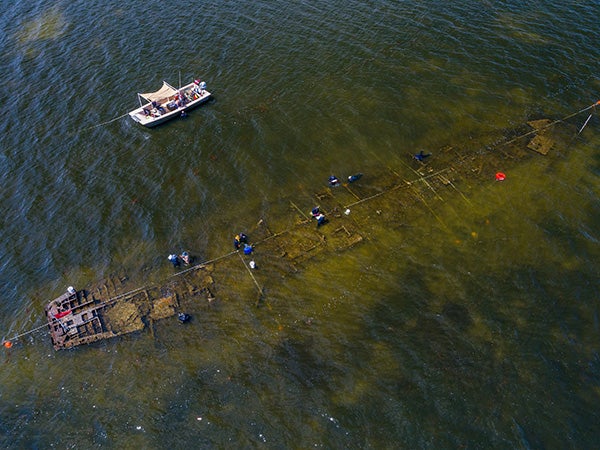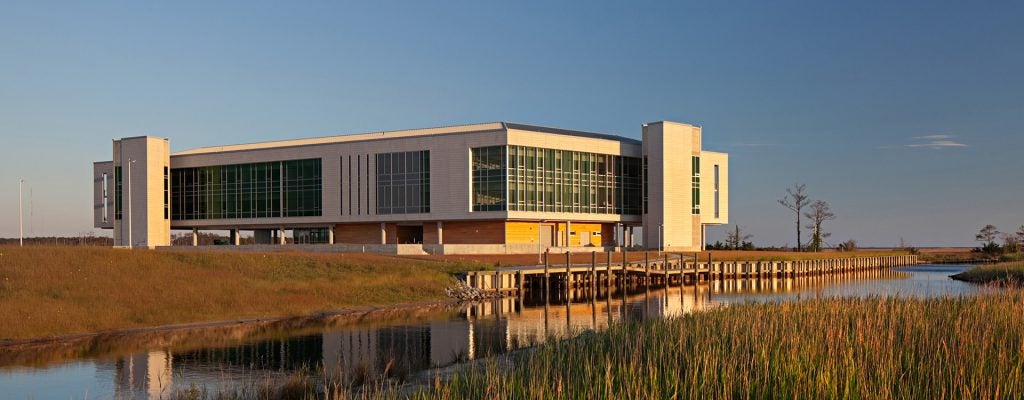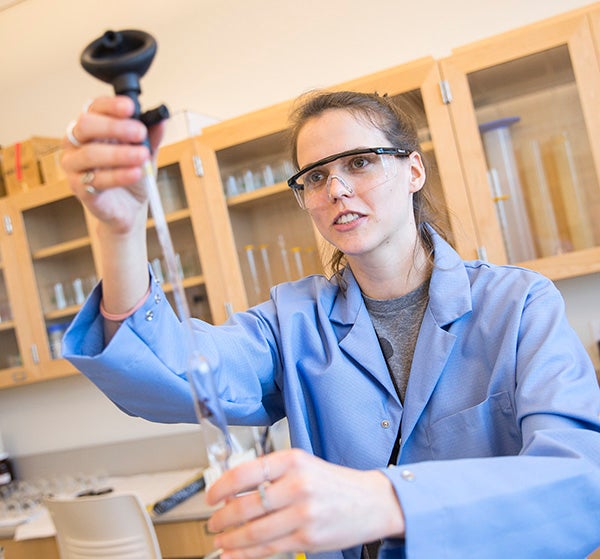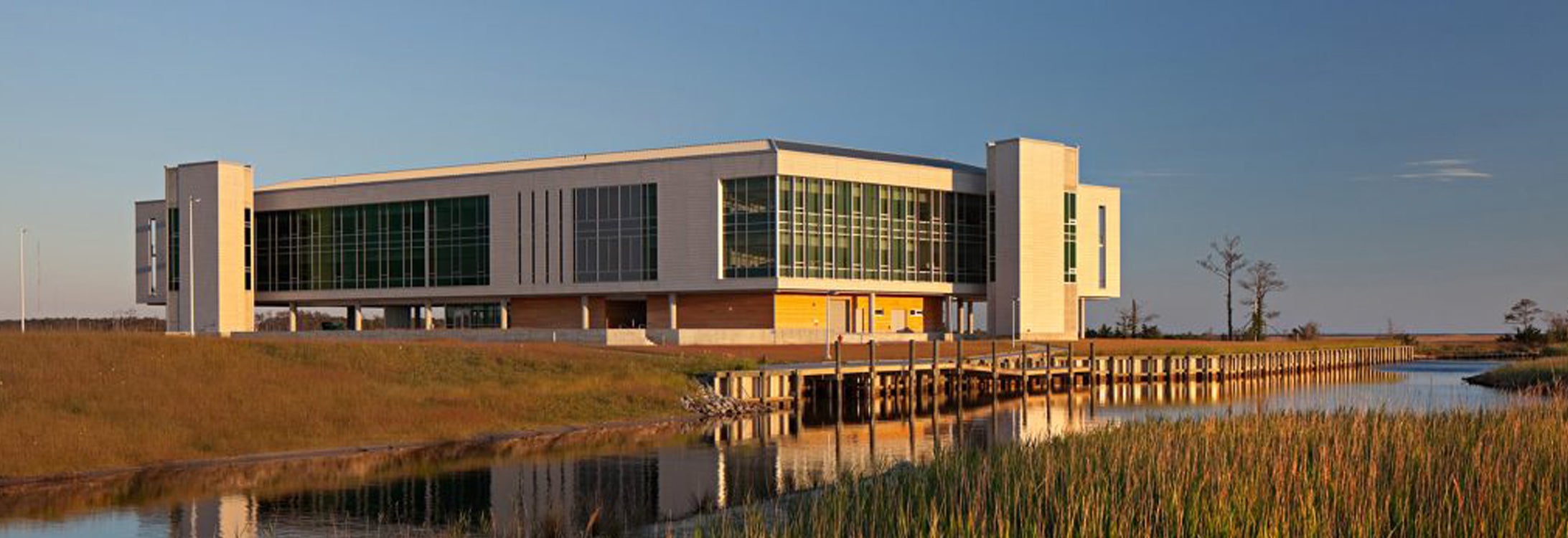Semester at the Coast
Pirates can now spend a semester at the Outer Banks
The beach isn’t just for spring break anymore.

Students work to document and map a shipwreck near Rodanthe. ECU’s Outer Banks Campus will offer a semester at the coast experience for ECU students for the first time next spring.
(Photo courtesy of Coastal Studies Institute)
Up to 20 students will have the opportunity to spend the spring 2020 semester at East Carolina University’s Outer Banks Campus in Wanchese as part of a new semester-long program focused on coastal resources, science and management.
“This will be the first opportunity that ECU students have to take a full load of interdisciplinary classes and live at the coast during the academic year,” said Dr. Reide Corbett, dean of Integrated Coastal Programs.
Students will work in the lab and in the field in courses such as environmental anthropology, remote sensing of the environment, and analysis techniques and methods of coastal ocean research.
“We’ve put a series of courses together that have a coastal slant,” Corbett said. “We intend to have a theme that runs across all of the courses, and this year that theme is ‘climate drivers of environmental change.’”
The courses can be used toward the coastal and marine sciences minor within the Thomas Harriot College of Arts and Sciences, and some count toward ECU’s general education requirements. In addition to the classes, which total 15 credit hours, Corbett said students will be encouraged to participate in independent research opportunities or internships that can provide additional credit hours.
“We have many partners out here on the coast that are interested in interns, including the U.S. Fish and Wildlife Service, the National Park Service and the Nature Conservancy,” he said.
Class sizes will be small, with a high level of faculty interaction and hands-on experience.

ECU’s Outer Banks Campus in Wanchese houses the Coastal Studies Institute. (Photo courtesy of John McCord)
Dr. David Lagomasino, assistant professor of coastal studies, said his class focuses on making sense of the changes to coastlines in North Carolina and around the world.
“The world’s coastlines are rapidly changing, but many times we cannot see when or why change happens. Satellites and remote sensing help us to see and make sense of those changes,” he said. “At the end of the semester, students will be able to say where and how fast our coasts are changing using satellite imagery, machine learning, cloud computing, state-of-the-art laser equipment and drones.”
Students in the program will live on Roanoke Island within biking distance of the Outer Banks Campus. Corbett said the tuition will be the same as a semester on main campus, and the housing cost will be comparable to living in a dorm.
Lagomasino said the program is an opportunity for students to immerse themselves in everything coastal.

Elizabeth Mason, research technician, analyzes a sand sample at the Coastal Studies Institute.
(Photo by Cliff Hollis)
“You will take classes at the award-winning Coastal Studies Institute with views of the Pamlico Sound, the country’s second largest estuary, in the background. You will explore over 100 miles of barrier islands,” he said. “The mix of informative lectures, hands-on activities and environmental exploration will fuel your mind, spark imagination and leave you with an understanding of the drivers of coastal change.”
ECU’s Outer Banks Campus is home to the Coastal Studies Institute, a multi-institutional partnership between ECU and other UNC System schools. The facility, completed in 2012, spans 213 acres of marshes, scrub wetlands, forested wetlands and sound ecosystems, and houses dive and research vessels, a wave tank, and both laboratory and classroom space. Major areas of research at the site include renewable ocean energy, coastal sustainability and maritime archaeology.
For more information, visit the Coastal Studies website.
-by Jules Norwood, ECU News Services
Related stories:
